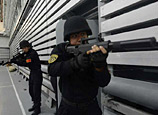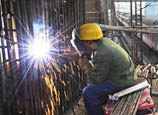
The ministry had aimed to have 80 percent of all tour coaches, long-distance scheduled buses and vehicles for transporting dangerous articles in those regions equipped with the BDS service by the end of March. Currently, there is no information available on whether this goal was reached.
In the city of Wuxi, one BDS services demonstration area in east China's Jiangsu Province, over 1,000 BDS navigation terminals have been installed, according to the Shanghai Securities News report.
Also on Friday, industry experts in Beijing endorsed a BDS demonstration project feasibility report submitted by southwest China's Guizhou Province, advising the state BDS management authorities to provide necessary support for the project.
East China's Shanghai will also kick off a project on the integrated application of BDS services that highlights the idea of the municipality as a "smart city," Shanghai Securities News reported.
Li Deren, head of Wuhan University's state laboratory of information engineering in surveying, mapping and remote sensing, said the scale of the world's entire geospatial information industrial chain was estimated at about 1 trillion yuan last year. ' China's satellite navigation industry alone has surpassed a scale of 120 billion yuan, Li said.
Zhang Jianqi, director-general of the China Space Foundation and a BDS expert, agreed that the scale of BDS-related industries will be huge.
"The market expansion needs to undergo a process," Zhang said in an interview with Xinhua. He said the country should roll out more industrial policies, including subsidies, to further boost growth in the sector.
China launched the first satellite for the BDS in 2000, and a preliminary version of the system has been used in traffic control, weather forecasting and disaster relief work on a trial basis since 2003.
The BDS is expected to cover the globe with a constellation of over 30 satellites by around 2020.

















 1,000-meter-long Spider Walk of Canton Tower opens
1,000-meter-long Spider Walk of Canton Tower opens


![]()
